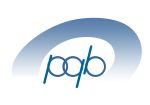T 85v16 - E-learning - ISO 37001 training package - Readiness and audit of your anti-bribery management system ABMS version 2016
E-Learning (online courses) - Implementation, maintenance, improvement and internal audit of your anti-bribery management system ISO 37001: 2016. You save 75 euros on the second course and 70 euros on included documents!
Description
T 25v16 ONLINE TRAINING ISO 37001 readiness version 2016
Discover the ISO 37001 standard version 2016 and
- its content
- its principles
- its requirements
- the stakes
Get used to
- anti-bribery approach
- anti-bribery management system (ABMS)
- process approach
- risk-based thinking
- anti-bribery documentation (procedures, records, policy, manual)
- ISO 37001 readiness documentation
- ISO 37001 internal audit documentation
- continual improvement
The important and fundamental elements of an anti-bribery management system
- anti-bribery approach (history, benefits, PDCA cycle)
- process approach (definitions, process types, mapping)
- context of the company (stakeholder requirements)
- leadership of top management (commitments, responsibilities)
- planning of the ABMS (risks, actions, objectives)
- operation (due diligence, controls, commitments, gifts, raising concerns, investigating)
- performance evaluation (monitoring, measure, analysis, internal audits, management review)
- improvement (nonconformities, corrective actions, continual improvement)
The menu of the course
- Presentation
- MCT (multiple-choice test) Beginning (10 questions)
- 1 Anti-bribery approach
- 1.1 History
- 1.2 Benefits
- 1.3 Steps
- 2 Standards, definitions, books
- 2.1 Standards
- 2.2 Definitions
- 2.3 Books
- MCT Anti-bribery (7 questions)
- 3 Process approach
- 3.1 Process
- 3.1.1 Management process
- 3.1.2 Realization process
- 3.1.3 Support process
- 3.2 Process mapping
- 3.3 Process approach
- MCT Process approach (7 questions)
- 4 Context
- 4.1 Issues
- 4.2 Stakeholders
- 4.3 Scope
- 4.4 ABMS
- 4.5 Bribery risks
- Case Interested parties
- Case Priority tasks
- Case New risk
- Case Risk treatment
- Case Risk register
- Summary of clause 4
- MCT Context (8 questions)
- 5 Leadership
- 5.1 Leadership and commitment
- 5.2 Policy
- 5.3 Roles
- Case Delegate work
- Summary of clause 5
- MCT Leadership (7 questions)
- 6 Planning
- 6.1 Actions
- 6.2 Objectives
- Case Root cause
- Summary of clause 6
- MCT Planning (6 questions)
- 7 Support
- 7.1 Resources
- 7.2 Competence
- 7.3 Awareness
- 7.4 Communication
- 7.5 Documentation
- Case Communication
- Summary of clause 7
- MCT Support (7 questions)
- 8 Operation
- 8.1 Planning
- 8.2 Due diligence
- 8.3 Financial controls
- 8.4 Non-financial controls
- 8.5 Anti-bribery controls
- 8.6 Anti-bribery commitments
- 8.7 Gifts and similar benefits
- 8.8 Inadequacy of controls
- 8.9 Raising concerns
- 8.10 Investigating
- Case Customer invitationDesign review
- Case Facilitation payment
- Case Contract and consideration
- Case Supplier selection
- Summary of clause 8
- MCT Operation (8 questions)
- 9 Performance
- 9.1 Inspection
- 9.2 Internal audit
- 9.3 Management review
- 9.4 Function review
- Case Audit readiness
- Case Audit program
- Case Auditor question
- Case Audit report
- Case Management review
- Summary of clause 9
- MCT Performance (7 questions)
- 10 Improvement
- 10.1 Nonconformity
- 10.2 Continual improvement
- Case Kaizen & problem
- Case Nonconformities
- Summary of clause 10
- MCT Improvement (6 questions)
- MCT End (20 questions)
T 45v16 ONLINE TRAINING ISO 37001 internal audit version 2016
Discover the internal audit in an ISO 37001 certified company and
- locate the audit in the anti-bribery approach
- identify the stakes
- understand the requirements
- control the tools
Get used to
- best practices
- good behavior
- the terminology
- the questionnaire
- the report
The important and fundamental elements of an internal audit
- scope
- normative references
- principles
- audit program (responsibilities, records)
- audit conducting (objectives, evidence, conclusions)
- auditor competence (knowledge, training)
The menu of the course
- Presentation
- MCT (multiple-choice test) Beginning (10 questions)
- 1 Scope
- 2 Normative references
- 3 Definitions
- 4 Principles
- 4.1 Management principles
- 4.2 Audit principles
- 4.3 ABMS performance
- MCT Internal audit (7 questions)
- 5 Audit program
- 5.1 General
- 5.2 Objectives
- 5.3 Risks
- 5.4 Establishing
- 5.5 Implementing
- 5.6 Monitoring
- 5.7 Reviewing and improving
- Case New risk
- Case Audit program
- MCT Audit program (11 questions)
- 6a Audit preparation
- 6.1 General
- 6.2 Initiating
- 6.2.1 First contact
- 6.2.2 Situations and feasibility
- 6.3 Preparing the audit
- 6.3.1 Document review
- 6.3.2 Audit plan
- Case Nonconformities
- Case Audit readiness
- MCT Audit preparation (8 questions)
- 6b Conduct an audit
- 6.4 Audit activities
- 6.4.1 Opening meeting
- 6.4.2 Audit evidence
- 6.4.3 Audit conclusions
- 6.5 Audit report
- 6.6 Completing the audit
- 6.7 Audit follow-up
- Case Audit finding
- Case Audit report
- Case Management review
- MCT Conduct an audit (8 questions)
- 7 Competence and evaluation of auditors
- 7.1 General
- 7.2 Auditor competence
- 7.3 Evaluation criteria
- 7.4 Evaluation methods
- 7.5 Auditor evaluation
- 7.6 Improving competence
- Case Auditor question
- MCT Auditor competence (7 questions)
- MCT End (20 questions)




